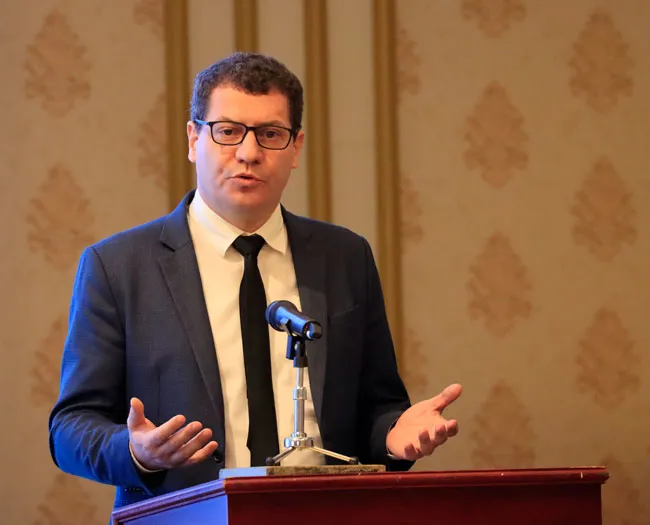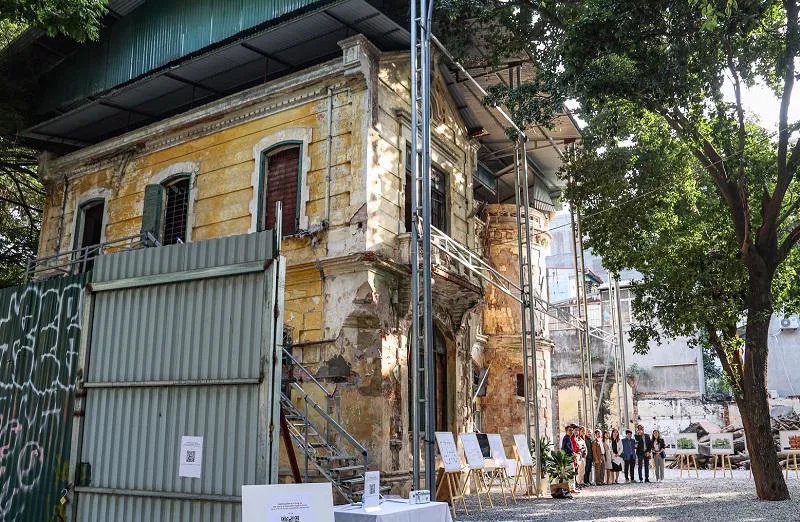Amended Capital Law sets stage for Hanoi's more PPP projects
The amended Capital Law will pay off in terms of better preservation of Hanoi's cultural heritage, French specialists argue.
Hanoi is working hard to transform its industrial heritage into public spaces. The move has been well received by experts, who say it will help the capital become a creative, global city. Emmanuel Cerise, director of the Paris Region Agency for International Cooperation in Vietnam, talks to Tuoi tre Thu do (Youth of the Capital) newspaper about how the amended Capital Law will govern public spaces in Hanoi.
| Emmanuel Cerise, Director of the Paris Region Agency for International Cooperation in Vietnam. |
Hanoi has planned to relocate several industrial plants to the outskirts of the city and transform their current locations into public, creative spaces. What do you think of this decision?
First of all, I'm convinced this is the right move for Hanoi because it's a common practice worldwide. In Paris and the Ile-de-France region, we have projects to convert old industrial plants that have been there since the 19th century. These factories are either suspended or removed, and their removal leaves free spaces that are available and suitable for creative spaces. We have seen similar projects successfully done in Asian metropolises, such as Beijing, Shanghai, and Hong Kong.
The point is that we should continue this policy and make it applicable in other places. We have seen many places that used to be factories turned into commercial and residential buildings. Of course, these projects are financially efficient, but in terms of culture, we should have protected the places and preserved the legacies and values brought by the existence and history of the factories. It is called urban heritage.
Cities and urban areas are built on a historical and traditional land, not an unknown place. When we relocate these plants, we must secure the land and the memories and legacies that have existed for years. These places should be saved for cultural purposes, not for commercial purposes.
In Paris, we have two typical cases. One is the 104 Art Center (Cent Quarte), where a slaughterhouse was built in the 19th century. Now, the site is being transformed into a modern art center. Another is Station F, which used to be an industrial site, just like the Gia Lam Train Factory. We secured the factory with all its facilities and turned it into a business incubator, now gathering all the startups in the region. There are many events and programs at this place to help startups get off to a smooth start.
| The French villa at 49 Tran Hung Dao Street, Hanoi before renovation. Photo: The Hanoi Times |
There are regulatory obstacles to policy. What do you think about the idea of giving Hanoi certain powers to maximize the use of resources to develop the cultural industry?
I'm not a legal expert, so I have no comment on the legal issues. As an urban planner, I think the Hanoi authorities should take control of the land prices charged for land that was once used by industrial facilities. By controlling the land prices, we will turn these public properties into public spaces to serve the community.
We need to maximize the benefits of public-private partnership (PPP) projects involving private enterprises. However, whether these private investors are financially capable or not, they cannot determine how the land will be used, as the decision-making power belongs to the city. Private investors should understand that their participation in the projects is welcome, but it does not mean they can do anything they want. The city authorities must take full control of land prices to optimize the land for public use.
The question now is how much power the Capital Law gives to Hanoi. I assume the capital has a certain degree of autonomy compared to other provinces and cities. Now, we need to make this autonomy practical so that the city and local governments are able to pursue the PPP model in socio-economic projects.
French architecture remains a highlight of Hanoi's culture. What should the city do to maximize its value?
Local governments should prohibit any action that damages the legacies. If a building needs to be demolished or repaired, developers need to get a professional assessment from experts and authorities. If a building is taken down, the historical values will be gone.
Although the renovation and conservation projects are costly and complicated, it is worth trying. Hanoi has renovated the French building at 49 Tran Hung Dao Street, proving the efforts are worthwhile. Therefore, the drafting of the amended Capital Law should regulate this matter.
Thank you for your time!













